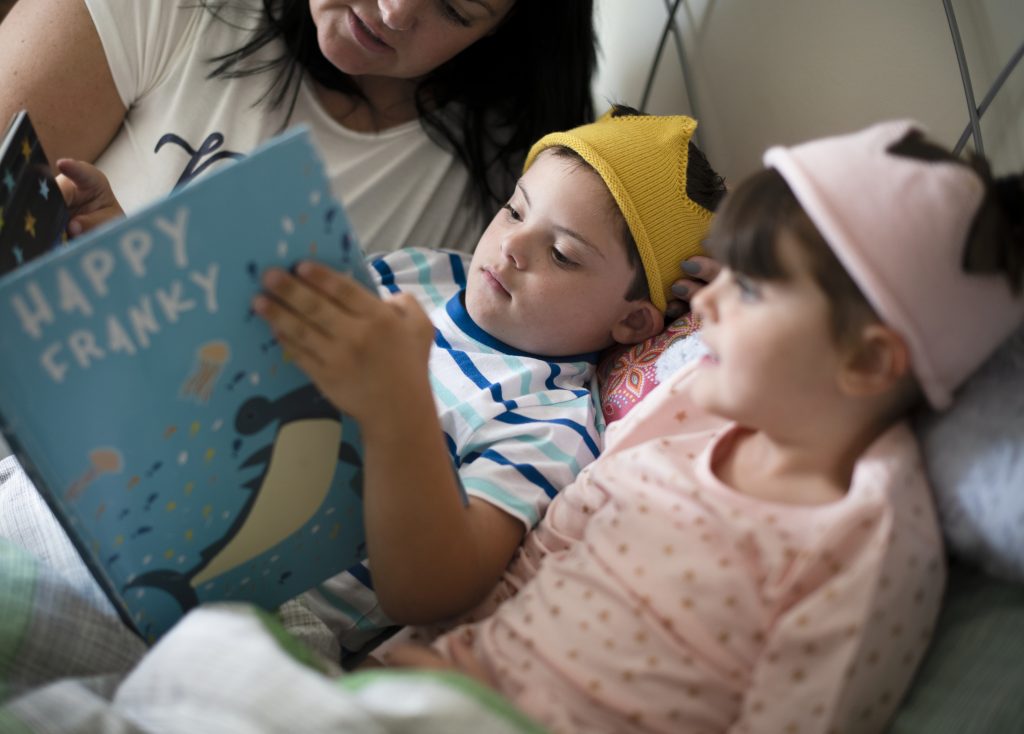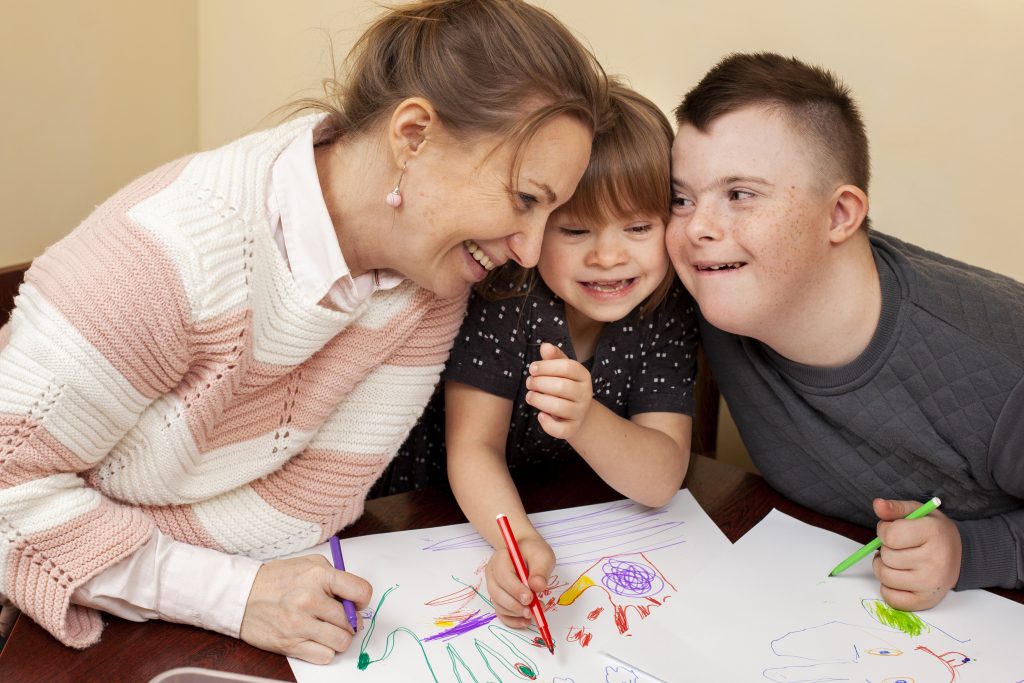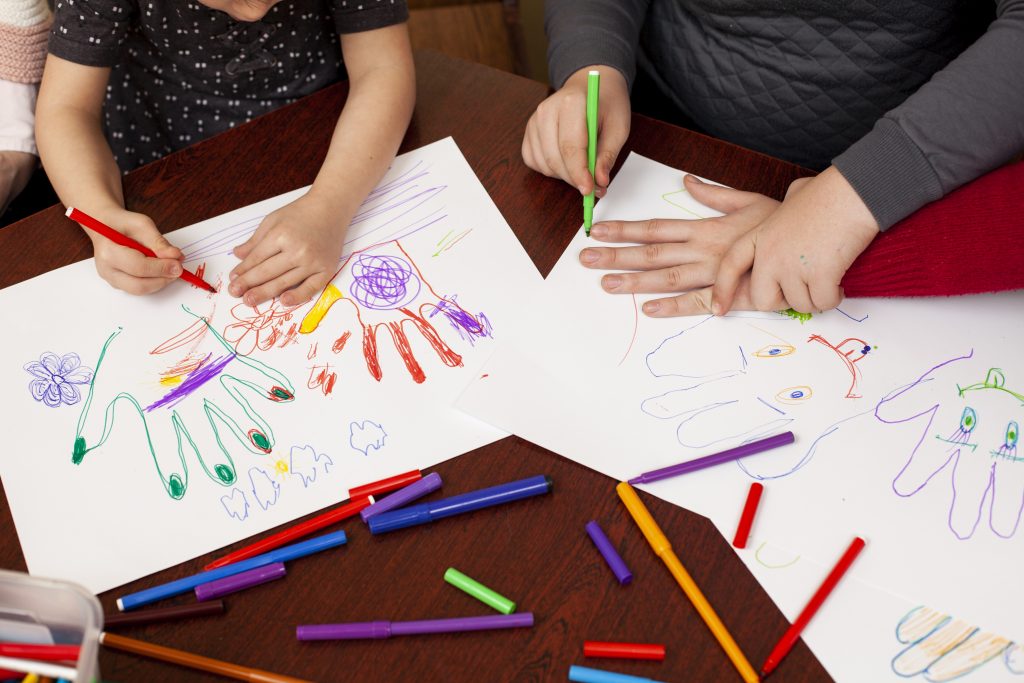Down syndrome affects thousands of families across the UK and in Nottingham every single day. It is a genetic condition that babies are born with and you may be in a situation where your foster children also have it. Down syndrome can typically cause physical characteristics and can cause some levels of learning disabilities.
If you’re caring for your foster children who have down syndrome, you may face certain challenges, however with the right care, training and support, you can maintain a happy life for children and young people with the condition.
For foster carers taking care of foster children child with the condition, the prospect can seem quite scary, but there’s no need to worry, as Fostering Dimensions can introduce you to a helpful support community and are always on hand to guide you through any barrier you may face when you foster in Nottingham.

Understanding the condition and your foster children
As with anything in life, the more you learn about something, the better you will be at dealing with it and offering the right kind of help and support your foster children may need.
Most people people are aware of the condition but more often than not, many people are unaware of the affect it can have on your foster children’s learning and development. All children with down’s syndrome have some level of learning disability and this can cause a delay to their development. However, it is important to keep in mind that this can differ from individual to individual.
When you’re fostering, you will naturally get excited when you reach milestones like standing, walking and talking for example. Reaching these milestones can be delay with Down’s syndrome and you may need to seek support or extra help.
It is also known that many foster children and individuals with down syndrome can also develop other mental health conditions like Autism and ADHD. This may required additional support across all aspects of their life, like at home and school. There are also physical results that need to be monitored. Our recommendation is that you constantly are in touch and communicating with your doctors and GP’s to ensure your foster children are receiving the right care and treatment they need.

Your role as a foster carer
If your foster children have the condition, you’ll have to play a vital role in helping them develop new skills and socialise and settle into the real world. This can be from speech therapy, physical interactions and communication skills and instincts. There are lots of things you can do to help and even though your children will get specialist care, there’s still a lot you can do at home.
Stimulate their cognitive skills – This can be anything from playing games, colouring, to talking and helping around the house. By doing so, it can teach them about interaction, get them thinking about the tasks they are doing and can open up conversations about what you’re doing and their interests. With encouragement, they can develop their communication skills to. This will help to build their basic needs as well as your relationship with your fostering children.
Give your child the opportunity to mix with other children – It’s important children with down syndrome have the sense of independence to prepare them for their adult life. It will also help them to see how other children interact and this can be very beneficial for them. This can be quite daunting so start with play dates then move onto bigger groups of children, if your foster children are comfortable with it.
Give them the right amount of independence – When you’re worried, it’s easy to smother your foster children. This can lead to bad habits of them becoming too dependent on you as foster carers. If it safe and your foster children are at ease with it, allow them to do stuff around the home by themselves. This can be setting the table, clearing up or helping around the house. This also gives them a sense of responsibility and belonging in your home.
These are just a few examples of some of the everyday interactions which can be helpful for children with Down’s syndrome, but should you wish to discuss these in more detail, you can always call the team at Fostering Dimensions.

Get the right support with Fostering Dimensions
Whatever challenges you face as a foster carer, your foster children are at the utmost importance. Fostering Dimensions will be here to offer fostering support for you and your child at every step. If you are interested in finding out different types of foster care available, we will help chose the best type of foster care for you and your family.
